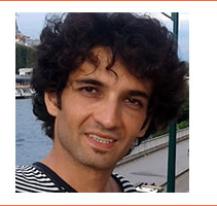
Farid Ghadami, an Iranian writer and literary translator, boasts a prolific career with over fifty published works spanning literature, translations, art, philosophy, engineering sciences, and mathematics. Renowned in Iran for his distinctive blend of humor and critical insight, Ghadami is recognized for his radical counterculture novels and controversial translations, particularly those associated with the Beat Generation. As a trailblazer in Persian literary translation, Ghadami holds the distinction of being the first to translate major literary works into Persian, including James Joyce’s Ulysses, William S. Burroughs’ Naked Lunch, Allen Ginsberg’s Howl and Other Poems, and Jack Kerouac’s The Dharma Bums and Big Sur. Additionally, he has translated D. H. Lawrence’s Lady Chatterley’s Lover into Persian, and it is now undergoing the publication process for the first time in Iran. His pioneering efforts began in 2008, and since then, he has been consistently introducing Beat Generation literature to Persian speakers. In 2021, Ghadami, having spent years teaching in Iranian engineering faculties, relocated to Paris to pursue his doctoral thesis in American literature at Université Paris-Est Créteil. His research focuses on “Walt Whitman and the literary community.” Additionally, in 2023, he co-authored the book Two Assassins with Oliver Harris, delving into the portrayal of Hassan Sabbah in the writings of William Burroughs. Beyond translation, Ghadami has contributed significantly to Persian literature with five novels, including Women in my Life, The Commune of The Dead, Dominant, Maya, and Parisian Pieces. Notably, he has an upcoming, yet-to-be-published work in English titled Paris: Clitoris. His literary criticism encompasses five books, including Politics of Literature and Hitchhiking on the Road to Modernity: On the Beat Generation. Moreover, he has completed over 40 translations of diverse authors such as Walt Whitman, Henry Miller, Anaïs Nin, Arthur Rimbaud, Mahmoud Darwish, William Butler Yeats, Ossip Mandelshtam, Italo Calvino, Antonin Artaud, Richard Brautigan, Amiri Baraka, and William Blake.

